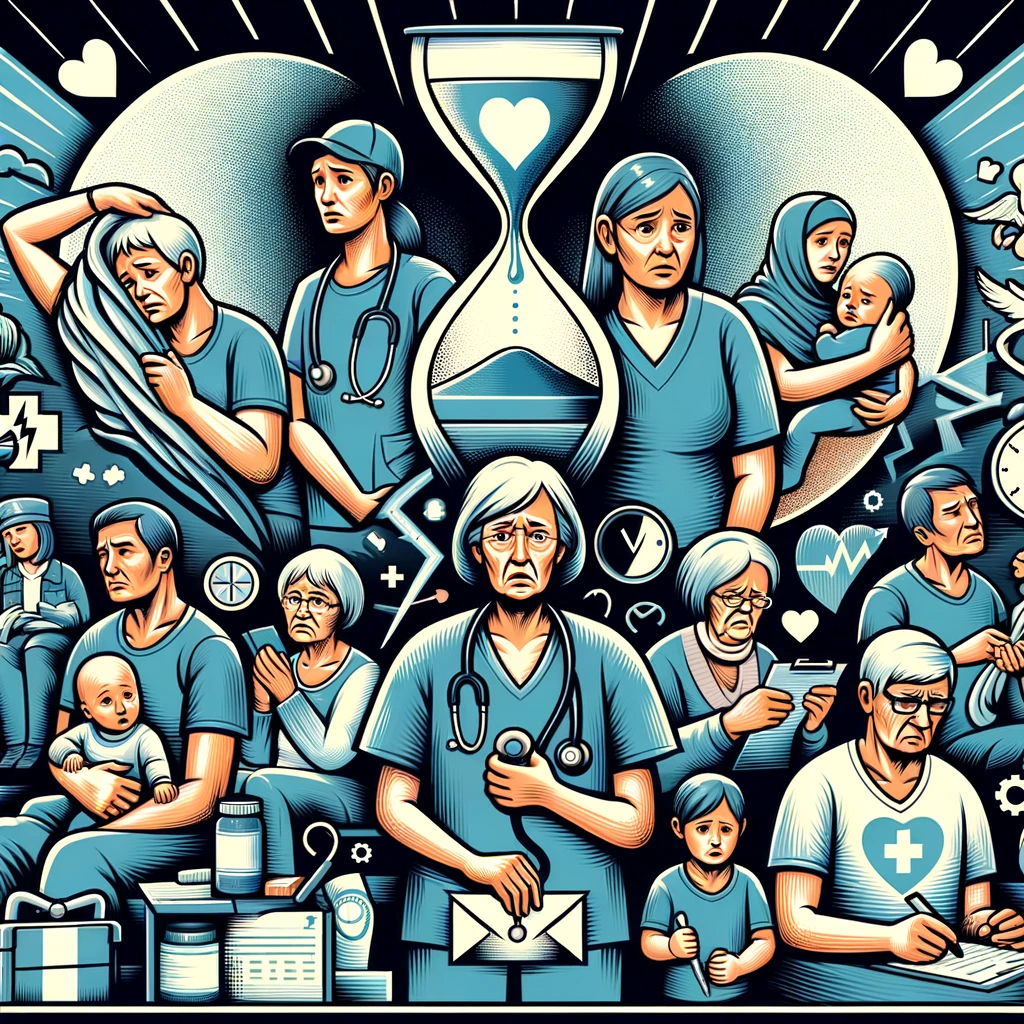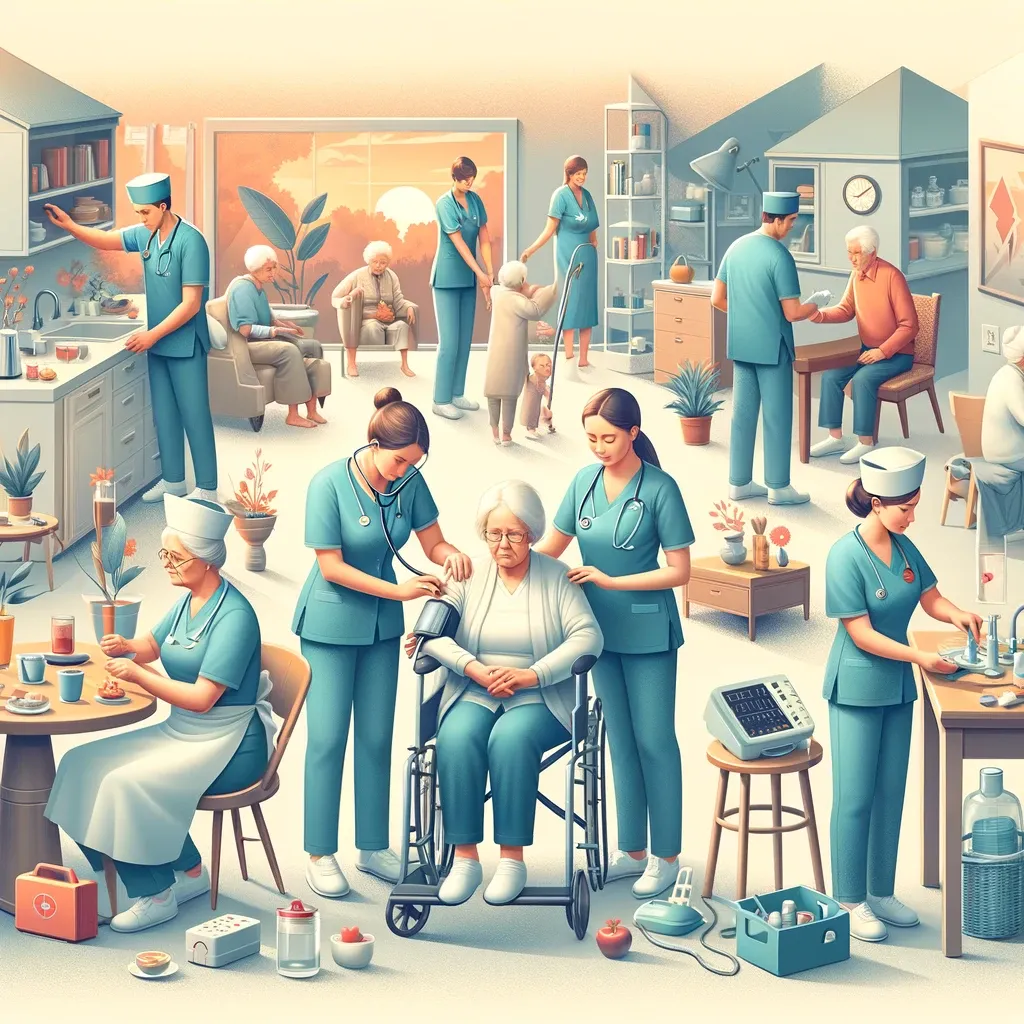Survey: Nearly Half of All Nurses Would Choose a Different Career if They Could 'Do it all Over'
A recent survey of over 8,000 nurses nationwide shows that nearly half of them would choose a different career if they could start all over again. The survey highlights the growing issues of burnout and dissatisfaction among nurses, as well as the impending nursing shortage facing the nation.

By David Heitz
A new survey of more than 8,000 nurses nationwide shows that nearly half of them would choose a different career if they could start all over again.
It’s bad news for caregivers on many fronts. First, it shows that professional caregivers, or at least nurses, are just as burnt out as we already suspected they are.
Second, for those of us with loved ones who rely heavily on the care of nurses, hearing these professionals are not happy is unsettling. We all have seen them have a bad day now and again, and it’s not good for the patient.
Finally, the timing of their reported discontent couldn’t be worse: As Baby Boomer nurses exit the profession to retire, their elderly peers are needing their services more than ever. Our nation faces a massive nursing shortage. Between now and 2022, about a million Registered Nurses alone will need to be hired, according to the American Association of Colleges of Nursing.
The survey was conducted online among members of Medscape who are nurses. Medscape is the news division of WebMD. You can view the report by clicking here.
A few things from the survey that struck me most:
- About 25 percent of all nurses work overtime, with 14 percent of those working 10 or more extra hours a week. At my dad’s memory care facility, there was only one nurse on shift for the 40-plus residents at any given time and it was not uncommon for them to work double shifts. My heart broke for them seeing them weary and exhausted. I used to wonder too what would happen if one were to fall asleep and a crisis were to develop, as crises are routine in memory care facilities. “Overtime work is often used as a solution for understaffing and variations in patient load, which can have a negative impact on both nurses and patients,” according to the report. “The American Nurses Association recommends limiting work weeks to 40 hours within 7 days and work shifts to 12 hours.”
- Those in skilled nursing or long-term care (i.e. nursing homes, assisted living) are the least satisfied of all. They ranked at the very bottom among 10 nurse practice settings when asked if they would stay in that setting if they had the opportunity to go elsewhere, even ranking behind nurses in the military.
As my dad moved from facility to facility during the final three years of his life, which ended Sept. 27, I got to know a lot of nurses in a variety of settings: Assisted living, skilled nursing, hospital, and of course doctor’s offices, too. When I would chat them up about nursing, the more senior nurses often said “nursing just ain’t what it used to be.” They missed days gone by, when nurses provided more hands-on care: bathing patients, physical examinations, etc. They got to know the patient and their health needs. So much of that work these days is done by certified nursing assistants, which I would argue are a massively underpaid, undertrained segment of the workforce. In some states, such as Illinois, in assisted living facilities that do not receive federal funding, certified nursing assistants don’t have to be “certified” at all. Younger nurses, meanwhile, often spoke off the record to me about feeling unprepared — being thrown right into battle, so to speak — without much on-the-job training due to massive shortages at various facilities, employees chronically calling in sick, etc.
The survey underscores these sentiments: With the exceptions of APNs, the highest-paid, highest-educated tier of nurses, most nurses said they would further their education if they could do it all over again.
Read my Healthline News report: The people caring for your parents live in poverty
Related CaregiverRelief News: New law aims to improve working conditions for home care aides
- What do nurses say they like most about their jobs? Surprisingly, only a quarter said “relationships with patients” followed by “being very good at what I do” (22 percent) and “proud of being a nurse” (18 percent) and “making good money” (11 percent). You can click here for a word cloud that shows those responses. One nurse said the best part of her job is “relationships with my coworkers and the joy of caring for people, although it’s not like it used to be, as patients are now customers and expect to be placated and not cared for.”
Eek. That’s exactly the kind of attitude I did not want to see when it came to my dad’s care, although I suppose I do understand the sentiment. The United States is undergoing a seismic shift in the delivery of healthcare. Depending on who you talk to or how someone wants to depict the notion of value-based care, it can be a blessing or a curse. Sometimes it’s both. It’s a new model. The argument of whether it’s good and bad often changes based on the desires of different special interests.
Susan Yox, a registered nurse herself and director of editorial content for Medscape summed it up this way: “Nurses remain critically important to the delivery of quality healthcare, particularly in today’s environment of value-based, patient-centric care. The Medscape survey provides important insights into nurses’ views, attitudes, and career motivation – indicating a fair degree of financial satisfaction, but also uncovering some concerning perspectives about their happiness with their jobs and overall career decisions. Our hope is that the survey will get people talking and thinking about how to best support nurses regardless of practice setting, education levels and gender.”
You can read my in-depth report for Healthline News on more men entering nursing by clicking here.
Our Resources section can help you find the information and tools that you need. We have courses, videos, checklists, guidebooks, cheat sheets, how-to guides and more.
You can get started by clicking on the link below. We know that taking care of a loved one is hard work, but with our help you can get the support that you need.
Click here to go to Resources Section now!
You might also like this article:









